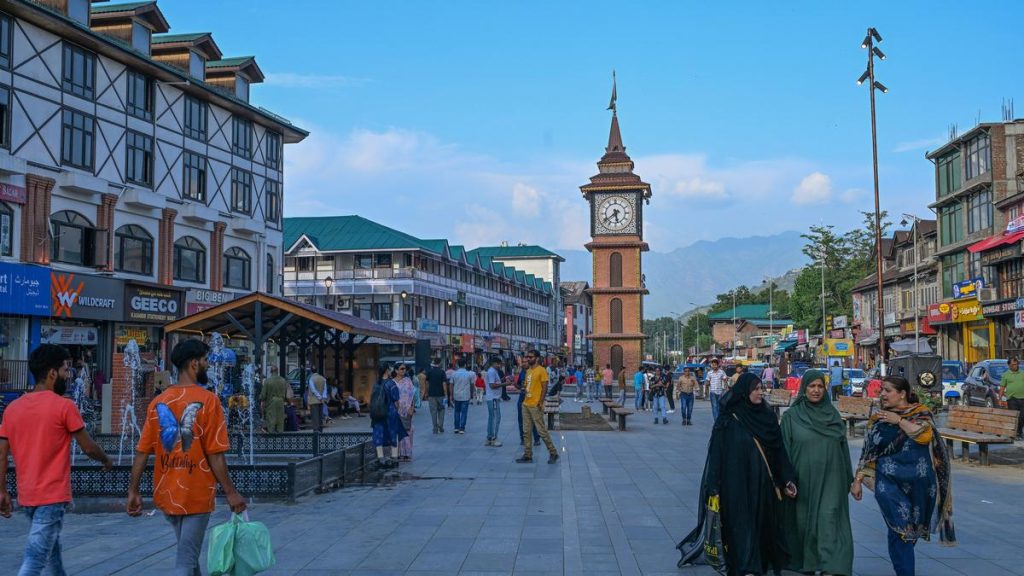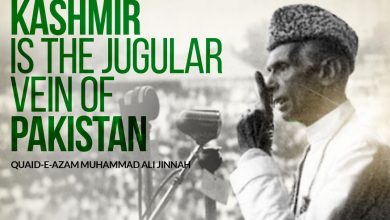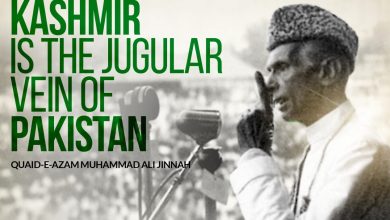Articles: India again hoodwinks world opinion by holding sham polls Jammu and Kashmir
Ishfaqullah Shawl
 The BJP-led Indian Government is once again trying to deceive world opinion by holding sham elections in its occupied part of Jammu and Kashmir, a region that has already been deprived of the special status guaranteed by the Indian constitution.
The BJP-led Indian Government is once again trying to deceive world opinion by holding sham elections in its occupied part of Jammu and Kashmir, a region that has already been deprived of the special status guaranteed by the Indian constitution.
On August 5, 2019, the BJP, a Hindu extremist Modi government abrogated Articles 370 and 35A with the sole intention of altering the overall demography of Jammu and Kashmir and depriving Kashmir of its unique Muslim-majority status.
Since 1990, when the Kashmiri nation began its indigenous movement for their inalienable right to self-determination, the term ‘sham elections’ has increasingly been associated with electoral processes in Jammu and Kashmir. However, particularly after the abrogation of Article 370 in 2019, the term “sham-polls” has been used locally and internationally to describe the election process in Jammu and Kashmir under the heavy presence of the Indian Army and its paramilitary forces.
The last (sham) elections for the Jammu and Kashmir Legislative Assembly were held in the erstwhile state in November-December 2014, in which out of 87 seats contested, the People’s Democratic Party (PDP) won 28, the National Conference won 15, the Bharatiya Janata Party (BJP) won 25, and the Congress won 12. These elections were of course sham-polls as the Indian ruling party BJP used entire machinery to manipulate polls to form a government.
The PDP and the BJP decided to form a coalition government under Chief Minister Mufti Mohammad Sayeed. On March 1, 2015, Sayeed took the oath as the Chief Minister of Jammu and Kashmir.
Elections in Kashmir have always been a point of concern not only for Kashmiris but also for those living outside Kashmir, who have frequently criticized the polls. After the abrogation of Article 370 by the Modi government, concerns about the legitimacy and fairness of the political environment in Jammu and Kashmir have only intensified.
The elections in Jammu and Kashmir often perceived as mere formalities rather than genuine democratic exercises, have sparked significant debate and skepticism.
The current situation under which Indian Election Commission has announced elections on the directions of Indian Supreme Court justifies labeling these elections as nothing but sham-polls in the broader context of Kashmir’s political landscape.
The term ‘sham-polls’ implies a process designed to appear democratic but fundamentally flawed in ensuring fair representation and genuine choice. In the context of Kashmir, a region with a complex political and historical backdrop, these elections have been criticized for several reasons.
One primary criticism is the restricted political space available to candidates, voters, and political parties. Those critical of the current administration or advocating for more autonomy or independence face significant hurdles. Like intimidation, arrests, and ban on the activities of candidates and their supporters.
This suppression of dissenting voices severely undermines the democratic process, making the electioneering similar to be called as ‘sham-polls’.
The security situation in Kashmir, with its heavy deployment of the Indian Army and paramilitary forces, has long been contentious. High levels of militarization and frequent reports of voter intimidation create an environment where genuine electoral competition is stifled. In many cases, voters are coerced into supporting certain candidates or parties, undermining the credibility of the electoral outcome.
The Indian BJP government’s attitude, given that it has not won a single seat in the Kashmir Valley yet secured 25 seats in previously held ‘sham-polls’ of 2014 in the Jammu region and formed a government in alliance with the PDP, raises questions on the credibility of polls.
Political pundits argue that past practices of the Modi government provide enough ground to accuse them of gerrymandering and manipulating electoral boundaries in Kashmir to favor certain political entities none other than BJP.
Such practices distort the electoral process and further erode public trust in the fairness of the elections.
One can easily assess how the BJP-led Modi government’s practices have impacted Kashmir’s political landscape, which is now overshadowed by the upcoming ‘sham polls’.
The trust deficit in political democratic institutions is not new as regards the electioneering in Jammu and Kashmir, and the influence of Indian political forces and their institutions such as the Army and paramilitary forces is widening this gap. When the people who are Electoral College and foundation of the political process perceive the polls as sham and illegitimate, it erodes trust in democratic institutions and processes. This can lead to greater political apathy and disenchantment among the populace, further destabilizing the region, as BJP an extremist political force in India is in dire need to gain the lost public support during 2024 Indian parliamentary polls.
At this juncture, there is a dire need for the global community, which positions itself as democracy-loving, to press India to respect the basic rights of the people of Jammu and Kashmir, allow them to exercise their inalienable right to self-determination, restore the special status of Jammu and Kashmir, withdraw its forces, and release all political prisoners.
It is also imperative that India must take appropriate measures to end polarization and stop creating more conflicts within the peace-loving society of Jammu and Kashmir. Suppression of political dissent and manipulation of electoral processes can exacerbate existing tensions and increase polarization.
Such actions often lead to heightened conflict and instability, making it even more challenging to achieve a peaceful resolution to the region’s issues.
‘Sham polls’ in Jammu and Kashmir can attract international scrutiny and criticism. The international community’s response to these elections can influence geopolitical dynamics and affect the region’s global standing.
Addressing the issue of sham elections in Jammu and Kashmir requires a multi-faceted approach, including the restoration of political freedoms and ensuring that political parties and candidates can operate freely and without fear of repression. This is crucial for the legitimacy of elections.
The writer is a working journalist and can be reached on ishfaq@journalist.com








